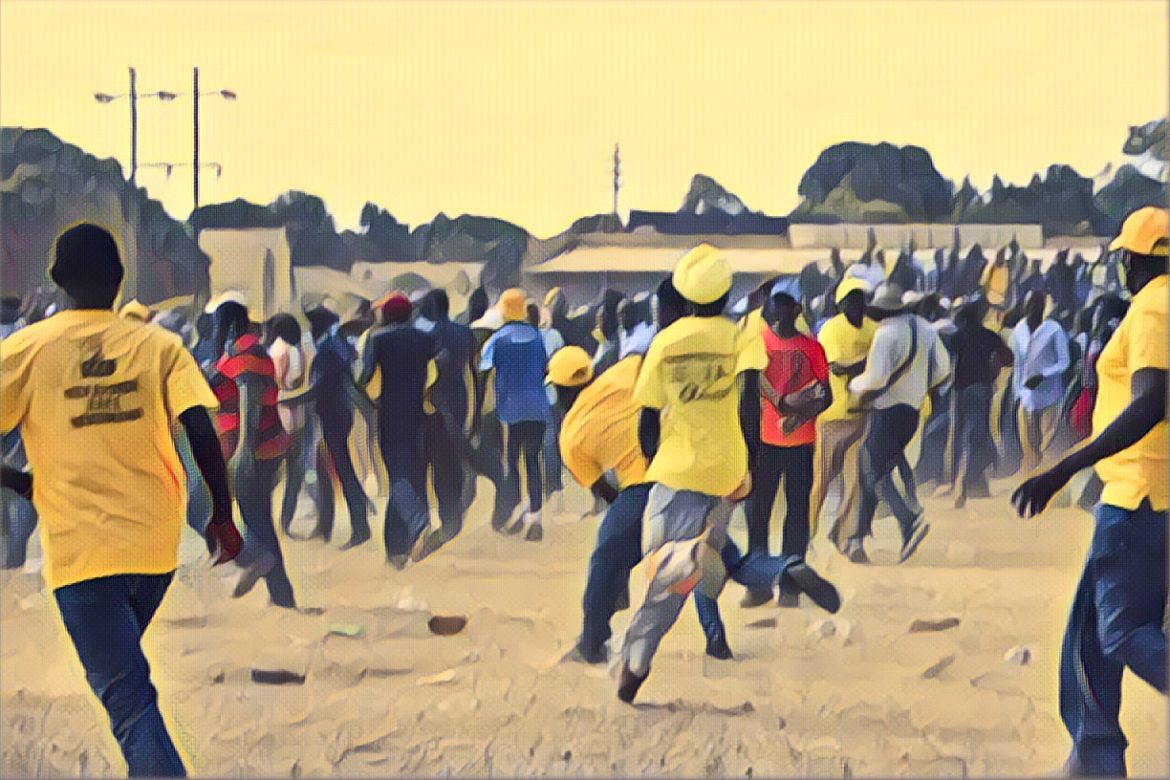In a concerning development from Beitbridge, Deputy Mayor John Manatsa found himself the victim of a violent altercation stemming from internal factional disputes within the opposition Citizens Coalition for Change (CCC). The incident, which unfolded at the residence of former Beitbridge West Member of Parliament Morgan Ncube on Monday evening, has cast a shadow over the party’s internal unity and raised serious questions about the use of violence in political processes.
The meeting, intended for CCC councillors and hosted at Ncube’s house, which also serves as a makeshift party office, took an unexpected and violent turn when a group of seven youths, reportedly loyal to the party’s former leader Nelson Chamisa, intruded. The youths, described as rowdy and aggressive, targeted Manatsa, accusing him of aligning with Sengezo Tshabangu, a figure they claimed to be the self-proclaimed party secretary-general. This accusation sparked a heated confrontation that escalated quickly, culminating in Manatsa being forcibly dragged outside and assaulted.
The attack on Manatsa, who recounted being lifted from his seat, thrown to the ground, and subsequently kicked, underscores a disturbing trend of violence infiltrating political discourse. Manatsa’s injuries, which required treatment at Beitbridge District Hospital, included harm to his hands, back, and legs, highlighting the physical toll of the clash. This episode not only inflicted physical injuries on the deputy mayor but also exposed the deep-seated divisions within the CCC, a party that positions itself as a challenger to the ruling establishment.
The response from law enforcement to this incident has been notably muted. Superintendent Philisani Ndebele, the acting commanding officer for Beitbridge, declined to comment, deferring to Senior Assistant Commissioner Paul Nyathi, the national spokesman, who was unavailable for comment. This lack of immediate police engagement raises concerns about the efficacy of law enforcement in addressing politically motivated violence, a critical issue in ensuring the safety and security of political actors and the public.
Complicating the narrative is Morgan Ncube’s ambiguous statements regarding the presence of the councillors at his residence and the intentions of the youths. Initially, Ncube suggested a lack of awareness among the youths about the meeting’s occurrence, a claim that seems to downplay the premeditated nature of the attack. However, his later admission of needing to gather more details from both factions indicates a recognition of the complexities involved in this internal party conflict.
The incident at Ncube’s house is emblematic of broader challenges facing political parties in Zimbabwe, where factionalism and violence often overshadow policy debates and democratic engagement. For the CCC, a party that has positioned itself as an alternative to the ruling ZANU-PF, internal cohesion and the renunciation of violence are paramount in convincing the electorate of its governance capabilities. The attack on Manatsa, therefore, not only represents a failure to protect its members but also undermines the party’s moral authority to criticize the ruling party’s handling of dissent and political violence.
As the CCC navigates this tumultuous period, it faces the dual challenge of addressing internal divisions and reassessing its approach to conflict resolution. The party must unequivocally condemn violence and take tangible steps to foster a culture of dialogue and mutual respect among its members. This involves not only disciplinary actions against those responsible for the violence but also a comprehensive review of the party’s internal mechanisms for conflict resolution to prevent similar incidents in the future.
Moreover, this incident underscores the need for a broader national dialogue on political violence and the mechanisms in place to prevent it. It highlights the imperative for all political entities, civil society, and the Zimbabwean government to collaboratively work towards creating a political environment where disagreements are settled through dialogue rather than violence. The rule of law must be upheld, and law enforcement agencies need to act impartially and swiftly to investigate and prosecute acts of politically motivated violence.
In conclusion, the assault on Deputy Mayor John Manatsa is a wake-up call for the CCC and the Zimbabwean political landscape at large. It serves as a stark reminder of the fragility of democratic institutions in the face of violence and the urgent need for political parties to cultivate a culture of peace and tolerance. As Zimbabwe moves towards future elections, the ability of political parties to internally resolve disputes without resorting to violence will be a critical test of their readiness to lead and foster a more inclusive, peaceful, and democratic society.
Source: Newsday


